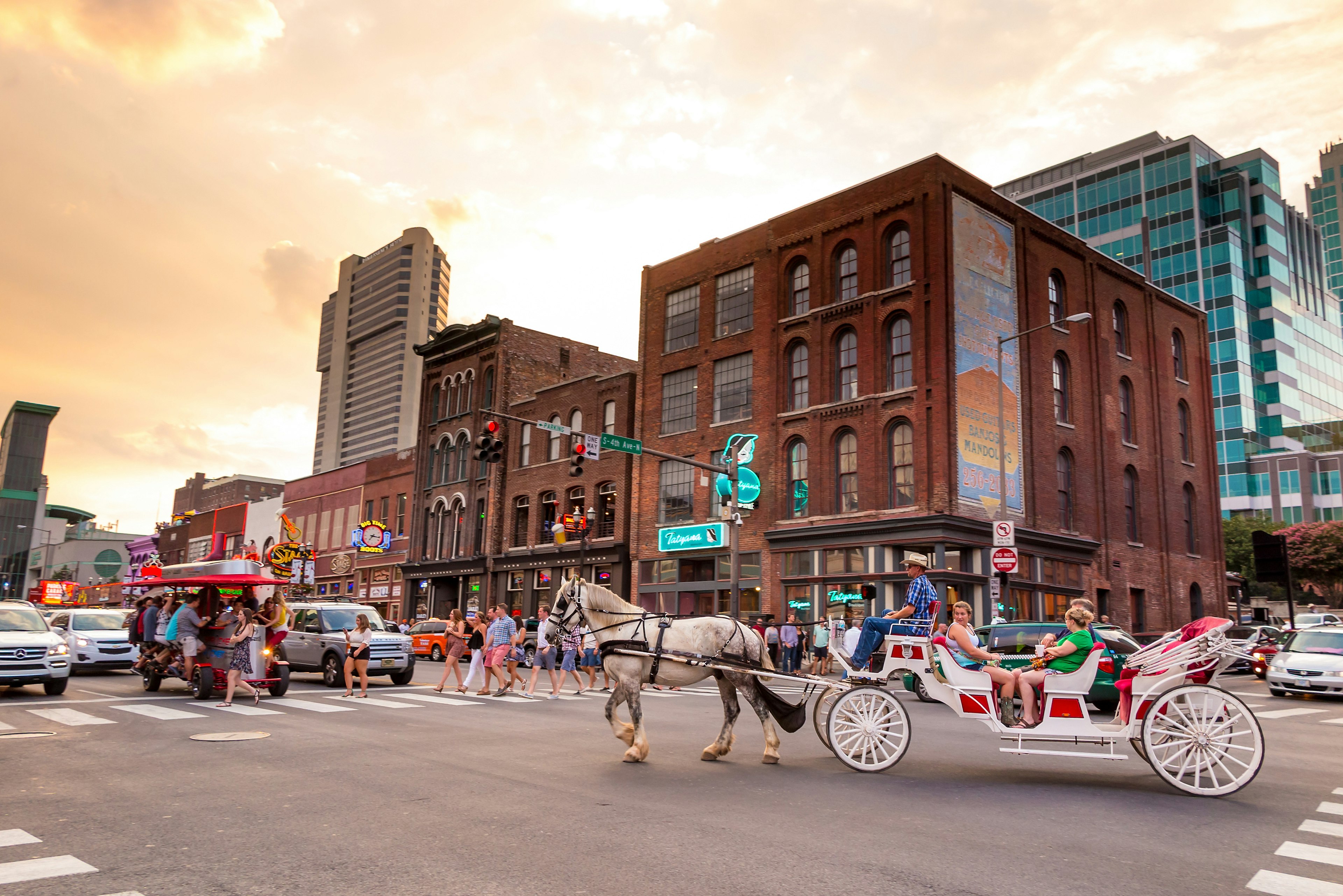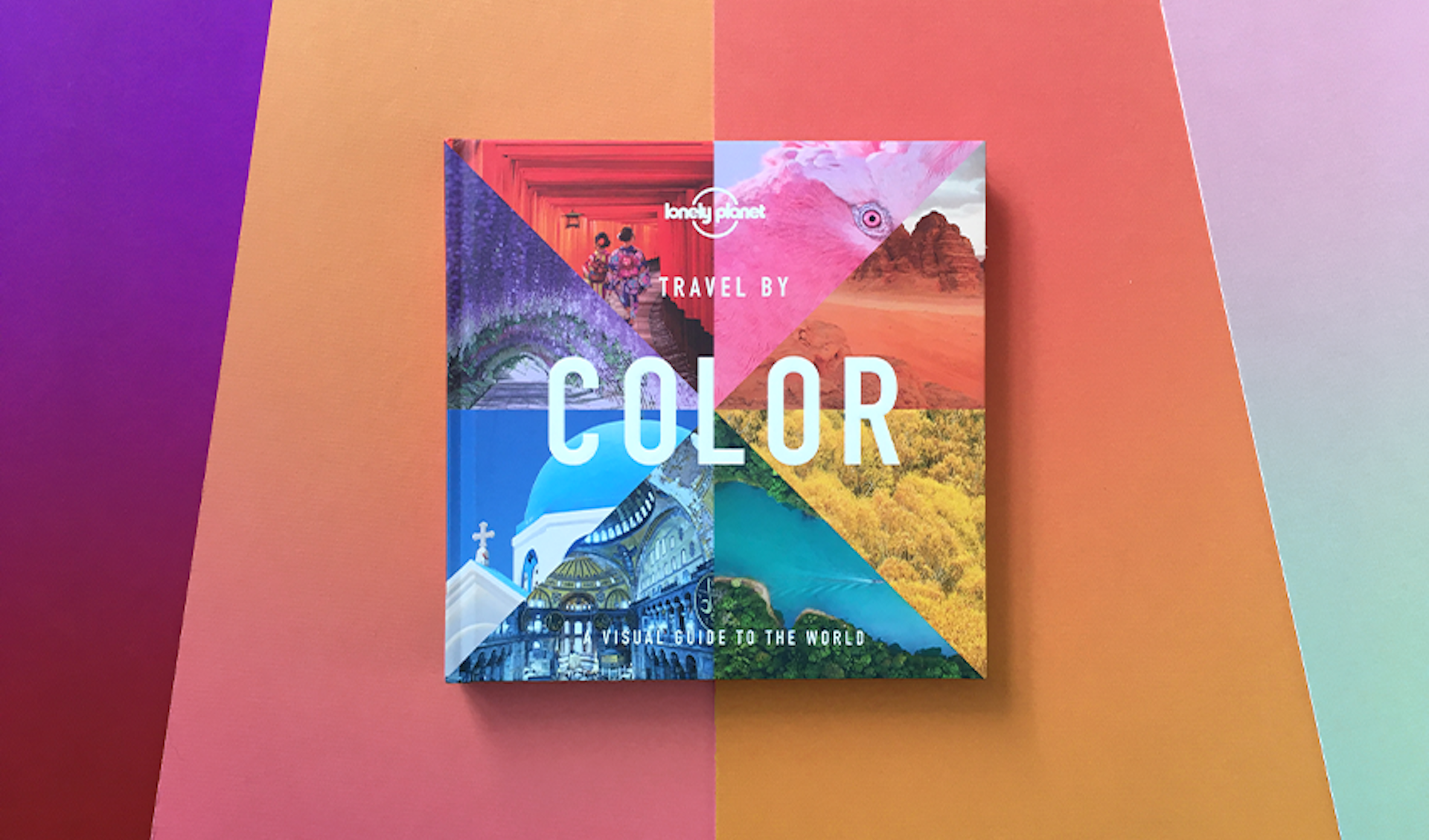There's no doubt about it – Nashville hit its stride in the age of the automobile, and all those country singers crooning about their cars and the pleasures of driving fast on back roads come by it honestly in Music City. Nashville sits at the center of three major highways (I-40, I-65 and I-24), and the best way to get from neighborhood to neighborhood is by car.
Other options include the city bus system, a modest light rail network and, to a limited extent, bicycles. You can also tap into the gig economy to get around, with a bevy of options ranging from ride-share apps to golf carts to scooters.
So if you're ready to navigate Nashville, from its downtown transit hubs to its diverse neighborhoods to the bedroom communities that rim the metro area, we've got you covered. This is how to get around, whether you're driving and crying, flying in on a jet plane, or on a Greyhound bus pretending to be Loretta Lynn on tour.
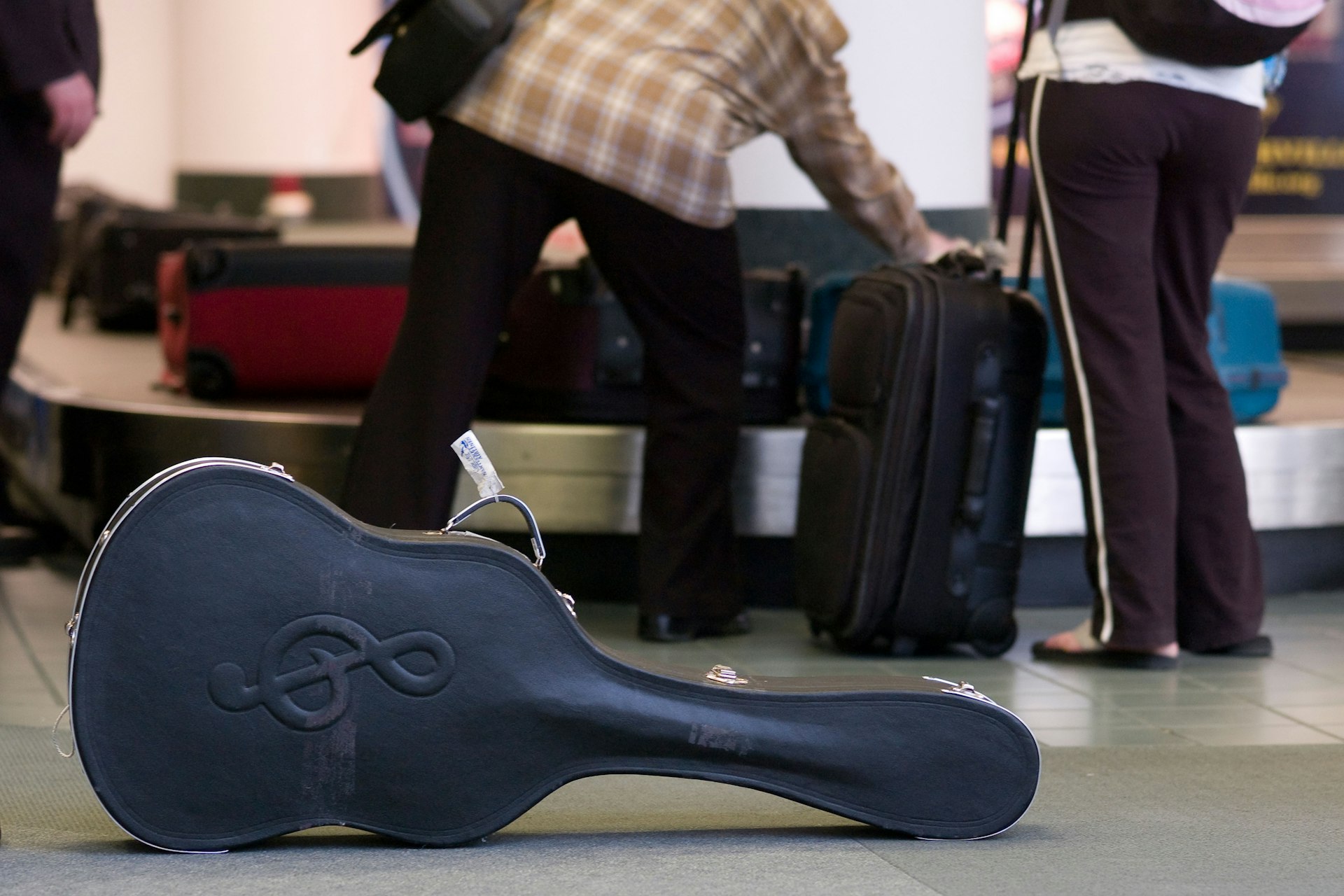
Arriving in Nashville
Nashville International Airport is 8 miles east of downtown via I-40. Major airlines serving the airport include Air Canada, Alaska, American, British Airways, JetBlue, Delta, Frontier, Southwest and United. The airport has three concourses. There are multiple stages in the airport with performers playing all sorts of music.
There are 10 car-rental agencies at the Nashville airport. Enterprise (from $12/96 per hour/day) is now offering a car-share program at Vanderbilt and Belmont Universities, too. There's technically a $20 application fee, though it's often waived. To get to downtown's Lower Broadway tourist district from the airport, follow Terminal Dr to I-40 W. Take exit 209A to merge onto 13th Ave S. Turn right onto Broadway.
Taxis charge a flat rate of $25 for a ride to downtown or Opryland. A taxi to Vanderbilt/West End costs about $27. A trip to Franklin runs $55 to $60. You can also book a shuttle to downtown Nashville from the airport. Shuttles can be found on the Ground Transportation level (Level 1). A list of shuttle companies is provided on the airport website. The rate to downtown is about $30. Popular ridesharing apps are available in Nashville, and you can take them to and from the airport. Ridesharing airport departures leave from a pick-up spot on Level 1 at the Parking and Transportation Center.

It takes about 35 to 45 minutes to get downtown on MTA bus 18 ($1.70), which runs from the airport. Express 18 takes about 20 minutes. The airport bus stop is on level 1 in the Ground Transportation area. As for the kind of bus that Allman Borther Dickey Betts was singing about on "Ramblin' Man," the Greyhound station is located downtown, well south of Broadway and just off Lafayette St. You can also ride a Megabus between Nashville and Atlanta (GA), Chicago (IL), Indianapolis (IN) and Louisville (KY), with stops in smaller cities like Chattanooga.
There's no Amtrak train station in Nashville; Memphis is Tennessee's only major city served by the rail line, though regular bus services connect Nashville to Memphis (3¾ hours). Your next best bet is taking the bus down to Atlanta's Amtrak station.
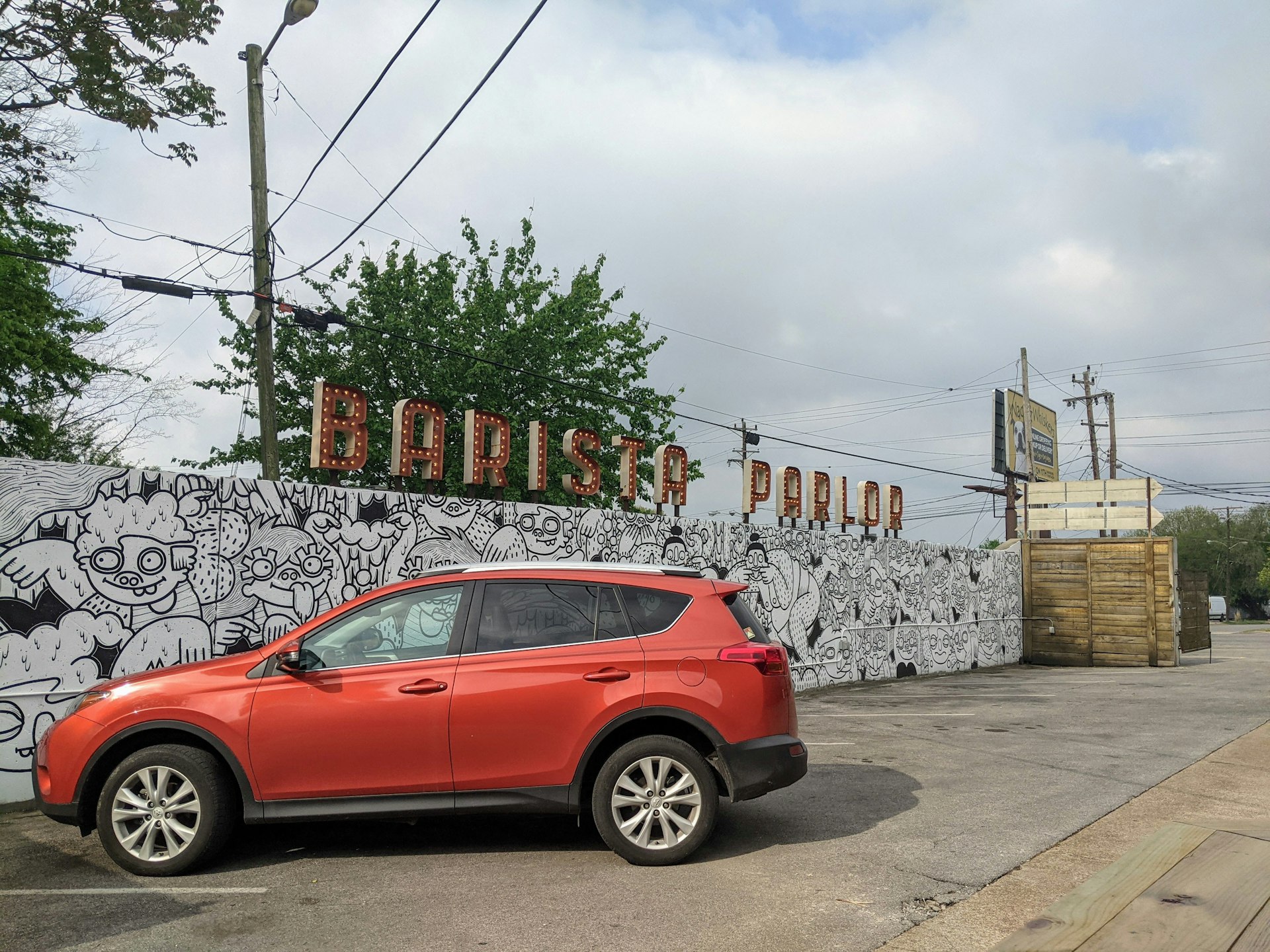
Car
To be perfectly honest, traffic is horrible in Nashville and getting worse. The city's rapid growth hasn't done its aging highways any favors, though there are efforts to expand and update the freeways. During rush hour, I-65 is maddeningly slow. The interstate exchange for I-65 near downtown and Midtown also gets clogged with heavy traffic, especially in the late afternoon. Anywhere on the map that shows two sections of interstate zippering together is going to have a slowdown as drivers try to merge into the correct lane.
That said, a car is still the best way to get around. While some neighborhoods are walkable once you're there, the Nashville metro is carved up into sections by the interstate system, rivers, and other obstacles. Most downtown hotels charge a parking fee, which can be $25 to $38 per night. If you'll be driving to downtown during a big weekend, plan ahead if you want to save time and money.
You can typically find a reasonably priced spot at the Music City Center. Alternatively, park in the free lot beside Cumberland Park east of the Cumberland River – it's known as Lot R and marked Cumberland Park – and walk over the Jon Seigenthaler Pedestrian Bridge to downtown. There may be a charge if there's a public event, however. Check Park It Downtown for more options.
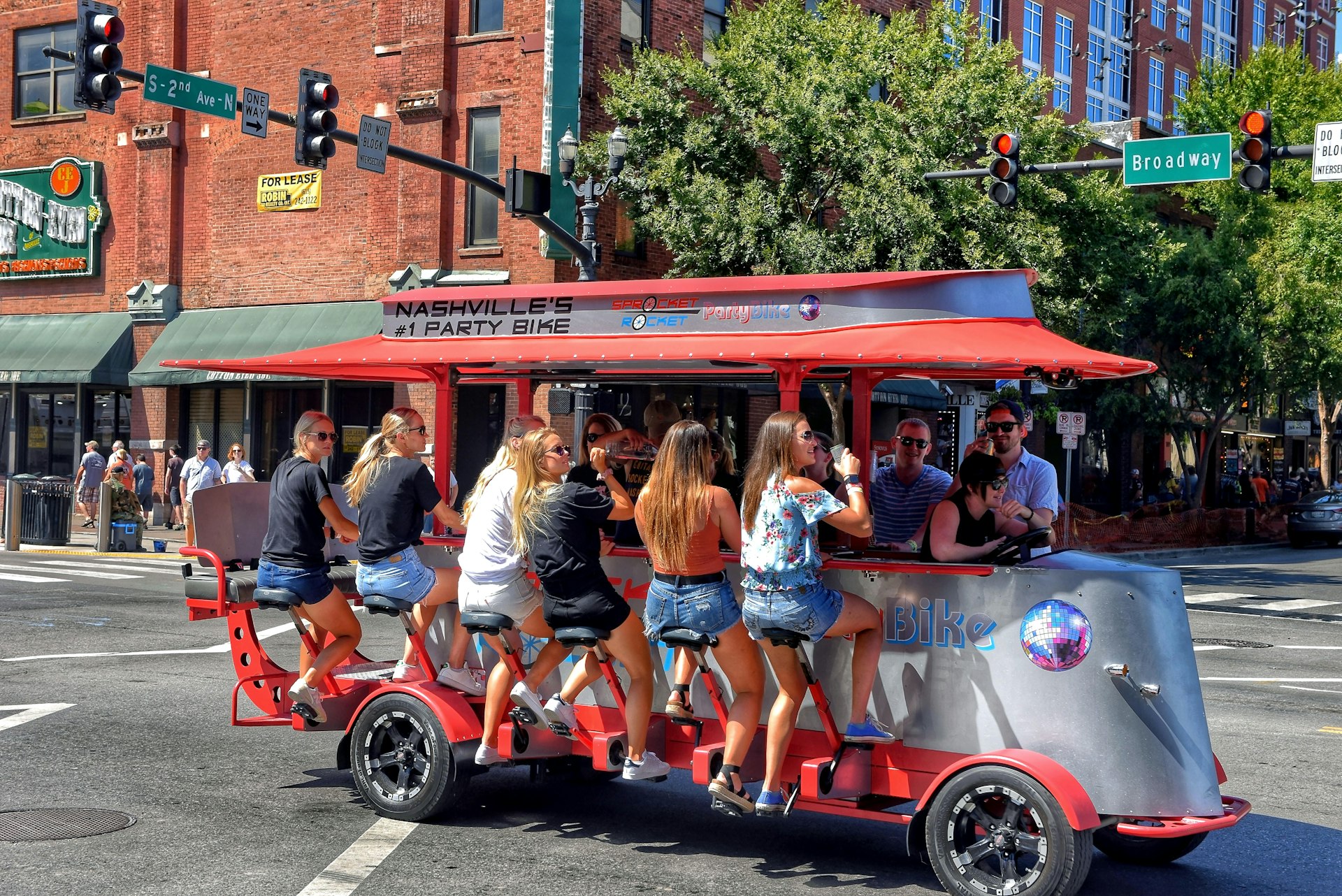
Taxis, Rideshares, and Pedal Taverns
The taxi drop rate is $3, then $2 per mile. Ridesharing services like Lyft and Uber are widely available, and highly recommended given the city's robust bar culture. On the Broadway tourist strip, pedicabs, tourist trollies and pedal taverns also abound, ferrying bachelorettes and bridesmaids from bar to bar – though the later may be counted less as a mode of transportation than an obstacle for motorists.
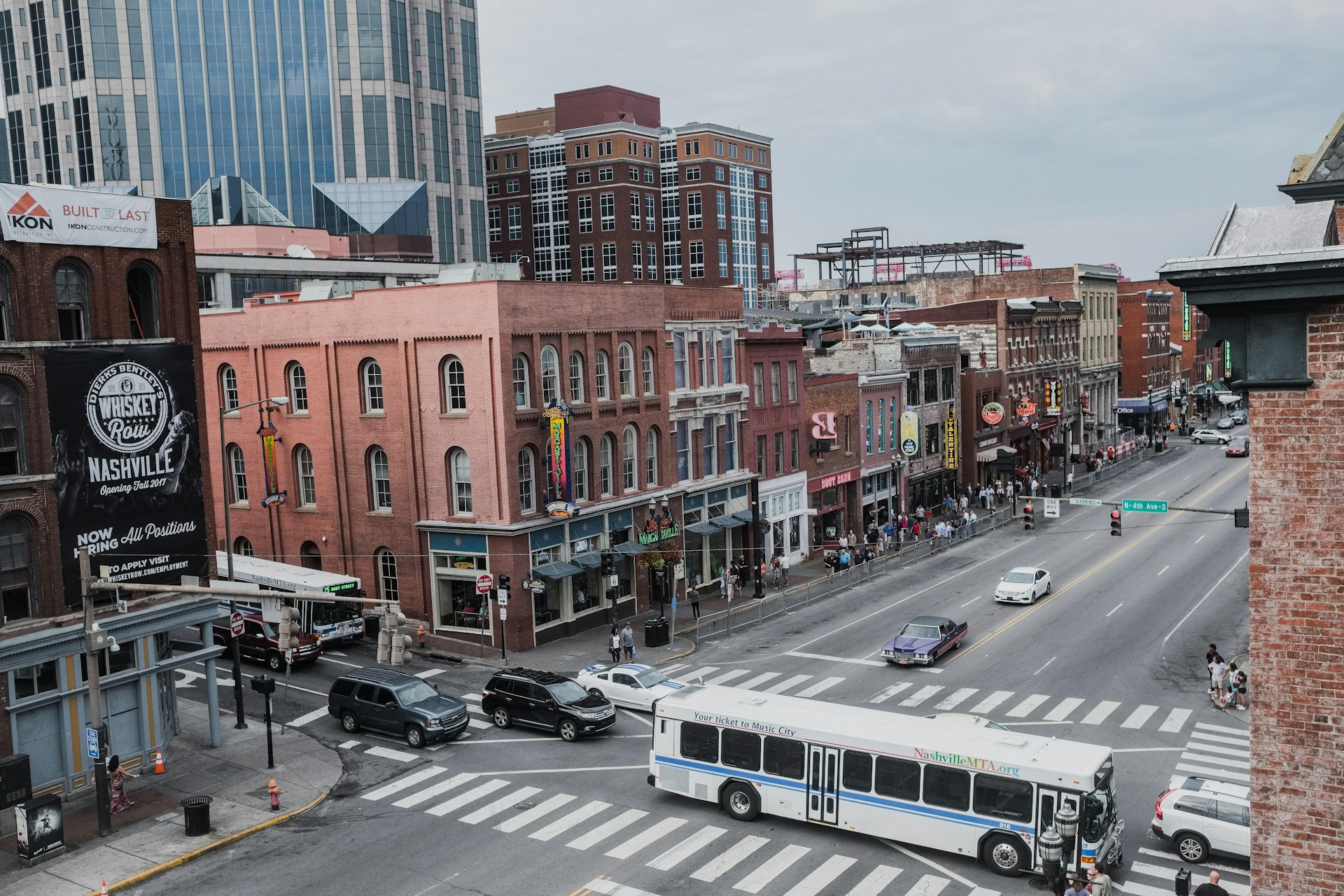
Bus and train
Like many southern cities, Nashville's public transit system creaks under the stress of class divisions, urban planning that hasn't always prioritized pedestrians, and sharp budget cuts even as the city has expanded. That said, WeGo (formerly known as MTA) does operate city bus services based downtown at Music City Central, including the free Music City Circuit, whose two routes hit the majority of Nashville attractions.
It's fairly easy to get from the tourist district downtown to the buzzy restaurants and bars of East Nashville by bus, meaning you won't need to make a transfer and your ride won't last too long. But if you're trying to get to further flung neighborhoods like Donelson, Nolensville, Hillsboro, or the Nations, you're looking at a ride time of at least thirty minutes even if traffic is chill.
Fares run $2 a ride, with discounts for anyone under 19 or over 65, and free rides for kids under 4. You'll need cash to cover your ticket, as there's no app and limited options for credit card holders. Be sure to double check the bus schedule for your route, especially if you're planning to stay out late. WeGo's schedules are designed with commuters in mind rather than tourists, and weekend service and evenings has gaps.
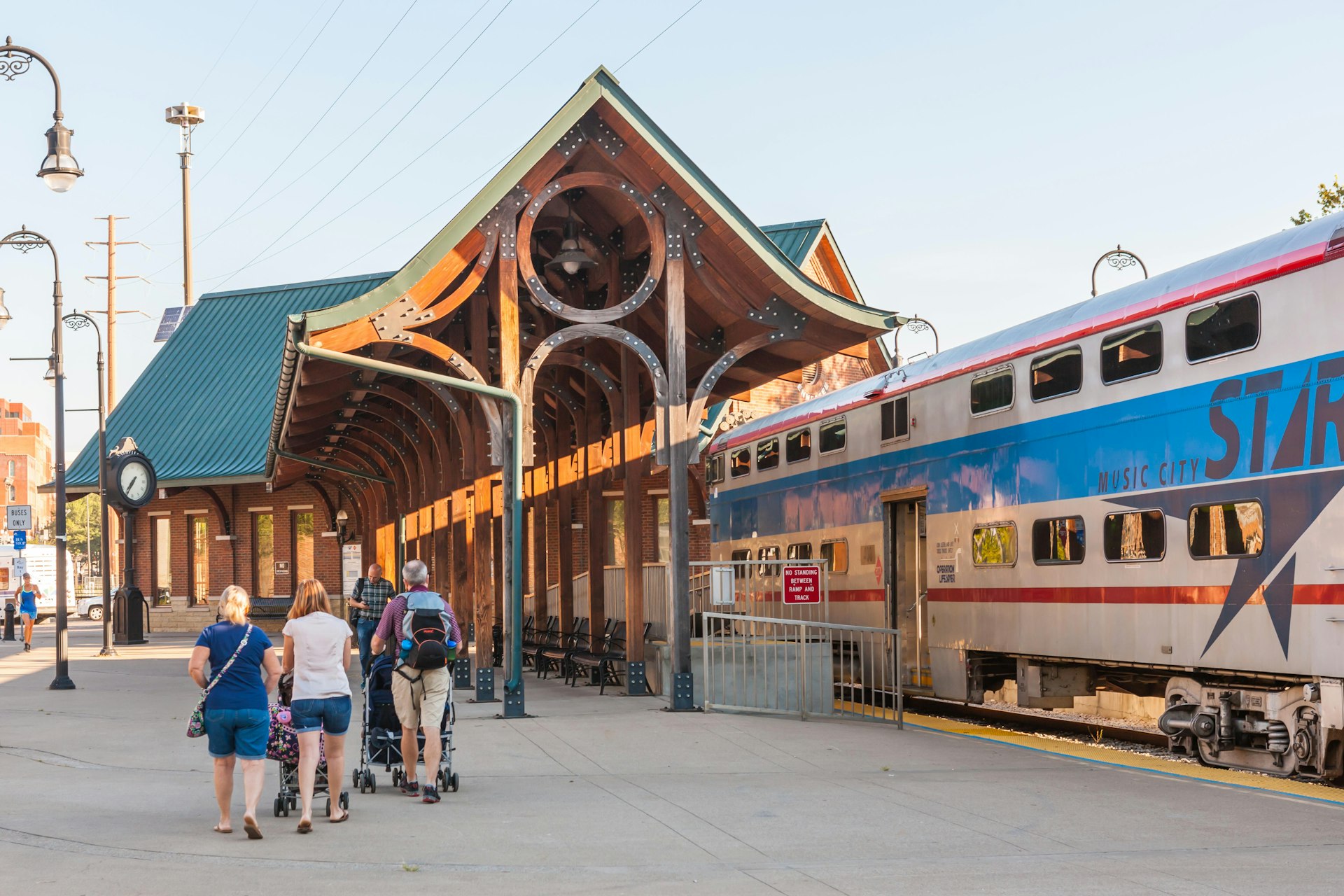
In addition to the city's public transit, there's also the Regional Transportation Authority, which operates broader services that connect downtown Nashville to surrounding bedroom communities including Clarksville, Dickson, Franklin, Gallatin, Hendersonville, Joelton, La Vergne, Murfreesboro, Smyrna, Springfield, Spring Hill, and Thompson's Station. A fare for the Relax and Ride regional bus service runs $4.25 for a standard adult express ticket.
The RTA also runs the Music City Star regional rail service, which links stations in Riverfront, Donelson, Hermitage, Mt. Juliet, Martha and Lebanon. The Music City Star primarily serves commuters, with three trains that run on weekdays only morning and evening, and not on major holidays. Park-and-ride centers are part of the network, naturally, since cars are so essential in Nashville. Fares to Donelson are $2, while all other fares are $5.25.
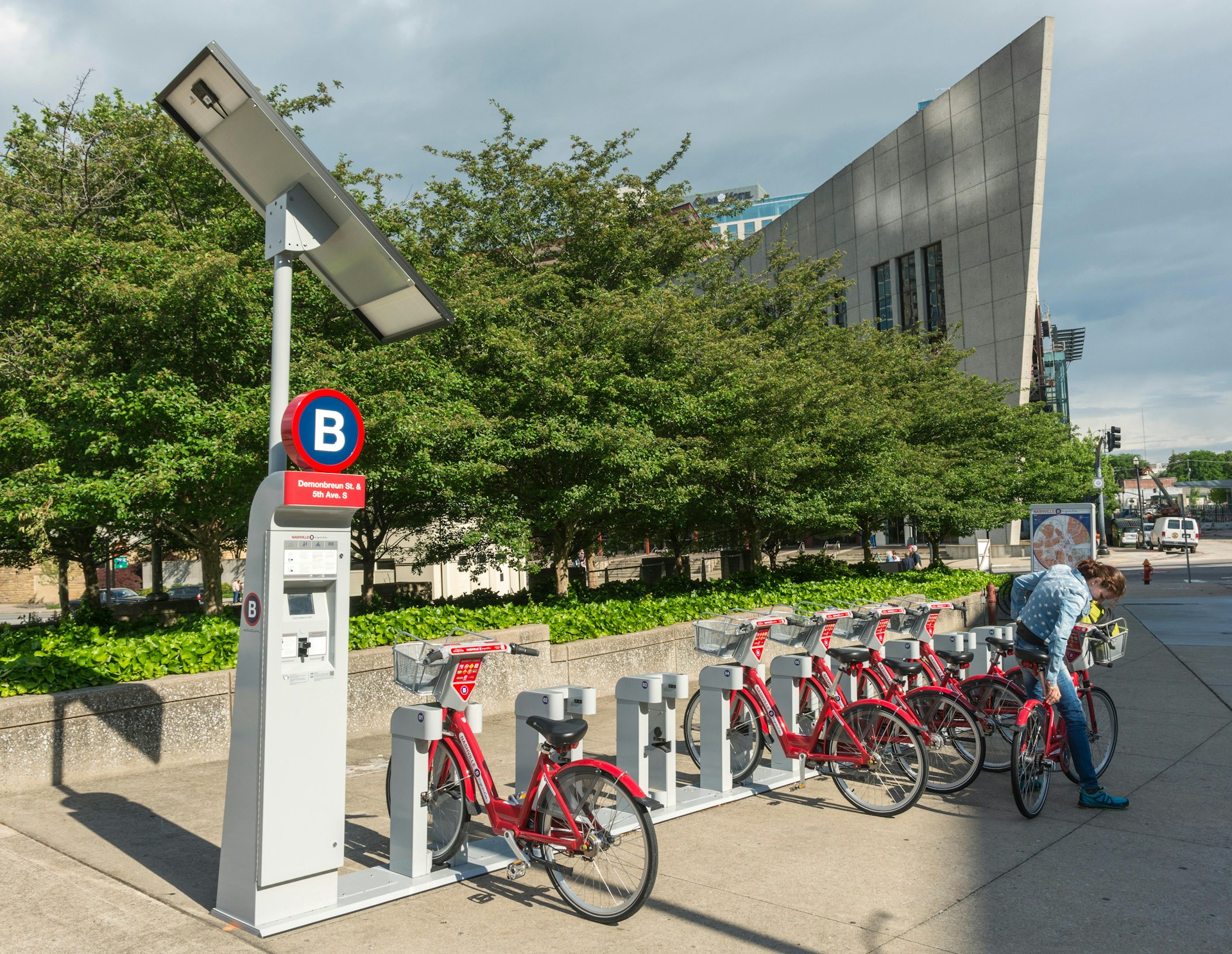
Bicycle
Nashville's public bike-share scheme, Nashville B-Cycle, offers more than 30 stations throughout the city. After purchasing a 24-hour membership for $5, your first hour is free; after that your credit card will be charged $1.50 per half-hour. Weekly, monthly and annual plans are also available. Maps can be found online.
Greenways run through the larger parks and connect a few of them – you can find B-Cycle stations at Shelby Bottoms Nature Center near the Shelby Bottoms Greenway and at the Music City Walk of Fame Park. B-Cycles are heavy, however, and may not be comfortable for longer cross-city rides. Bike the Greenway offers rentals.
Also cropping up in recent years are transportation options that are neither bike nor car. Hop a ride on a golf cart with Joyride, or a scooter with services like Bird.
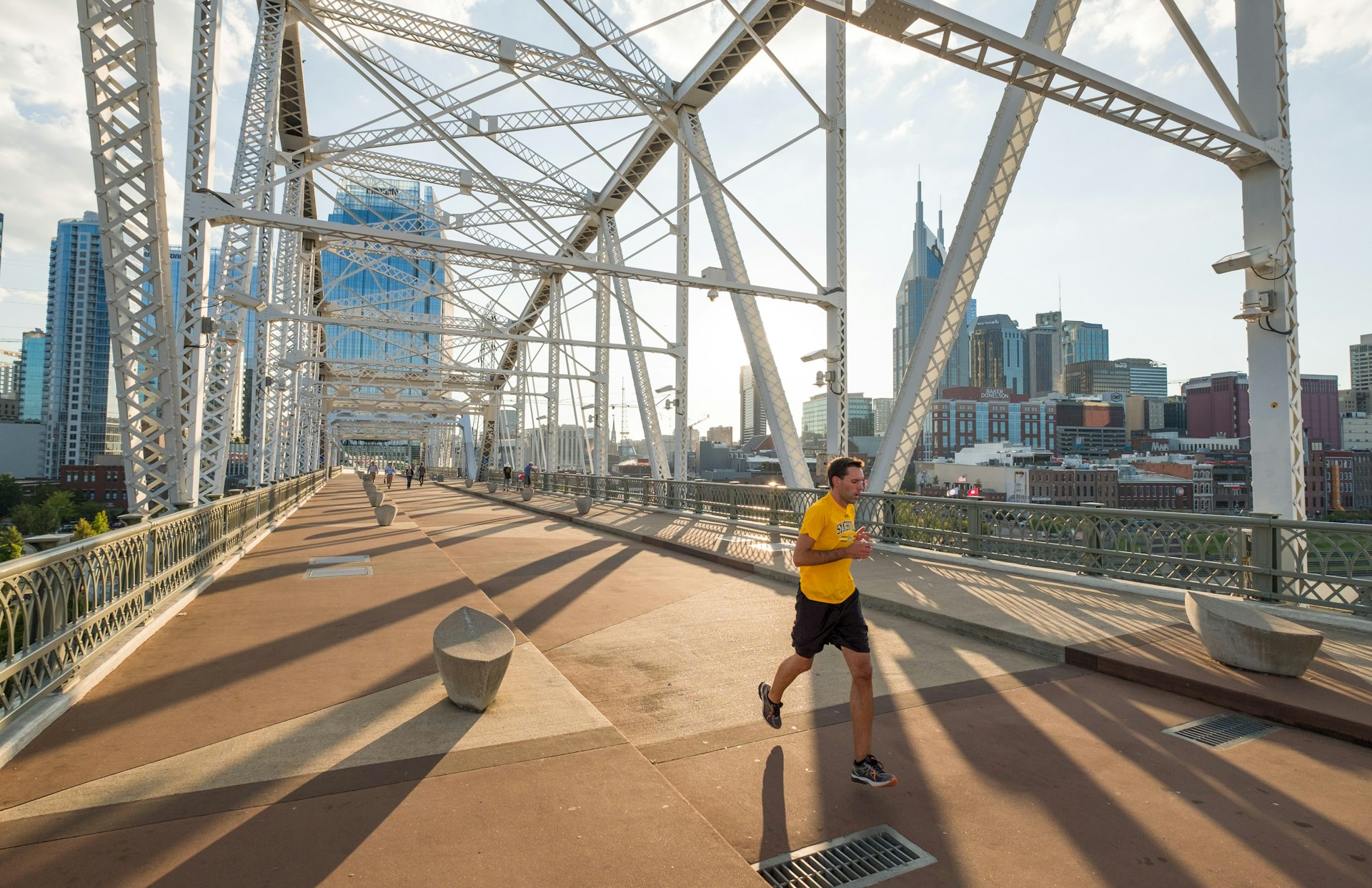
On Foot
Except for downtown, Nashville is truly not very walkable unless you happen to live and work in one of a handful of neighborhoods and rarely go further afield.
That said, local alt-weekly columnist J.R. Lind has a fascinating series called Walk a Mile which features different Nashville neighborhoods from a pedestrian perspective, charting the city's historical legacy and contemporary landscape one district at a time. You might get a sense of whether the corner of the city you're considering as a home base might be walkable enough when combined with public transportation, bikes, and rideshares – or dream up your own little Nashville walking tour.
Accessible transportation in Nashville
Nashville is not the most accessible city for travelers with disabilities, but there are definitely transportation options for the mobility-impaired. Buses operated by WeGo are all wheelchair accessible with a ramp at the front door of the bus. The Music City Star trains are also equipped with ramps for easy entry if you're using an assistive device.
You can also request an accessible taxi by phone, in theory, though it's best to do so in advance and you aren't guaranteed to get timely pickup – especially if there's bad traffic or a big event going on like a Predators game.
Rideshare services also have a dodgy track record when it comes to accepting passengers who have mobility devices. Be sure to confirm the rate and all details ahead of time, and to leave a little extra room in your schedule for delays.
For more information on accessible travel, please read through our online resources.
You may also like:
The best city parks in Nashville
The best Nashville hotels for every travel style
5 cities in the US southeast with strong coffee culture
